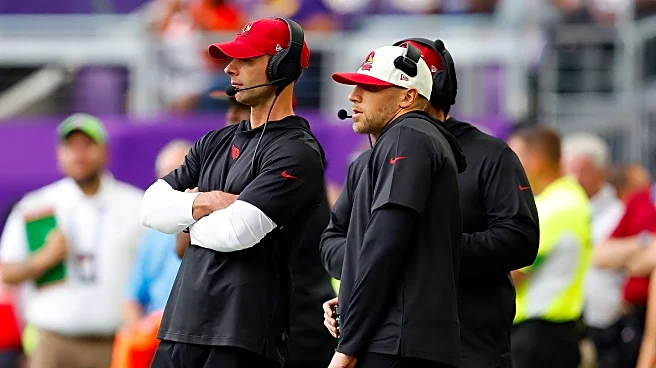What's Happening?
The Detroit Tigers are currently facing a substantial gap in contract negotiations with their star pitcher, Tarik Skubal. Reports indicate that the difference between the two parties is approximately $250
million, which would make Skubal's contract one of the largest in Major League Baseball. Skubal, known for his exceptional performance on the mound, has been a key player for the Tigers, boasting a 2.21 ERA and leading the American League in WAR this season. Despite his contributions, the Tigers have yet to reach an agreement to extend his contract, which is set to expire after the next season. If no deal is reached, Skubal could become a free agent, potentially leaving Detroit.
Why It's Important?
The contract negotiation gap between the Detroit Tigers and Tarik Skubal is significant for several reasons. Skubal is a top performer in the league, and losing him could impact the team's competitive edge. His potential departure would not only affect the Tigers' pitching strength but also their overall team dynamics and fan support. The financial implications are also considerable, as a $250 million contract would be among the largest in MLB, affecting the team's budget and future player acquisitions. The situation highlights the challenges teams face in retaining star players amidst rising contract demands.
What's Next?
As the Tigers and Skubal continue negotiations, the team must decide whether to meet his contract demands or risk losing him to free agency. The upcoming season will be crucial, as it may determine Skubal's future with the team. If no agreement is reached, other MLB teams will likely express interest in acquiring Skubal, given his impressive track record. The Tigers may need to explore alternative strategies to retain their star pitcher or prepare for his potential departure.
Beyond the Headlines
The negotiation gap between the Tigers and Skubal underscores broader trends in MLB, where player contracts are increasingly reaching record highs. This situation reflects the growing financial pressures on teams to secure top talent while balancing budget constraints. It also raises questions about the sustainability of such high-value contracts and their impact on the league's economic landscape.











